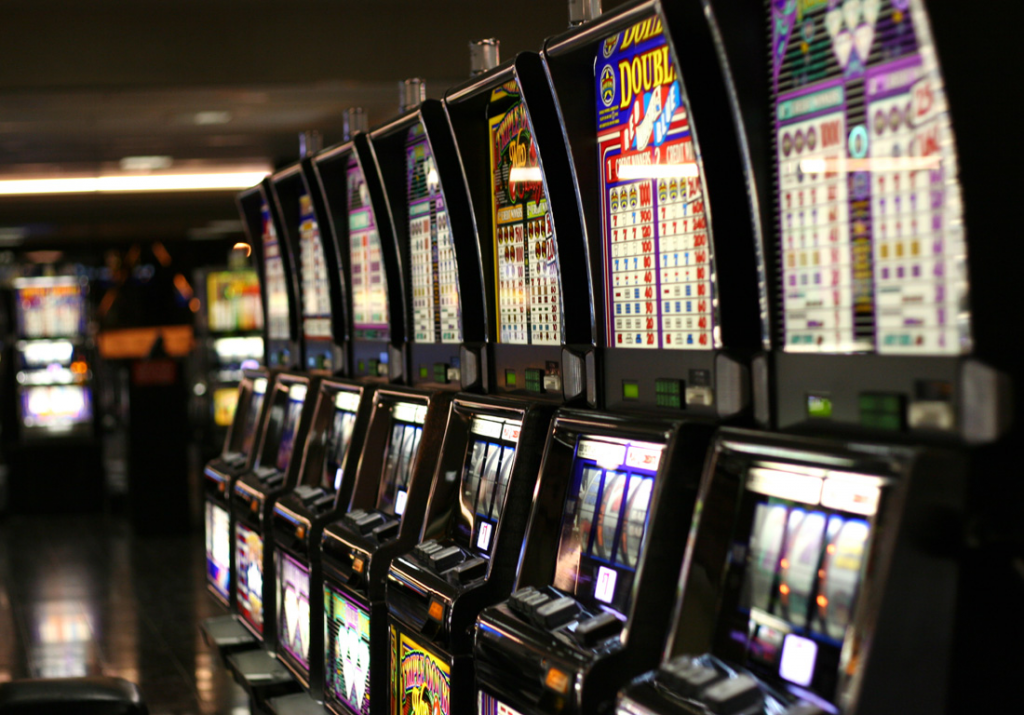Slot machines have come a long way since their humble beginnings in the late 19th century. From the iconic Liberty Bell to the modern-day digital video slots, these gaming machines have undergone a remarkable evolution. In this article, we take a journey through time to explore the fascinating history and transformation of slot machines.
- The Birth of the Slot Machine: The Liberty Bell
The first slot machine, known as the Liberty Bell, was invented by Charles August Fey in 1895. This mechanical device featured three spinning reels with five symbols: horseshoes, diamonds, spades, hearts, and the iconic Liberty Bell. Players pulled a lever to set the reels in motion and hoped for a winning combination. The Liberty Bell became an instant success and laid the foundation for the slot machines we know today.
- The Electromechanical Era: Adding Lights and Sounds
In the mid-20th century, slot machines underwent a significant transformation with the introduction of electromechanical models. These machines featured electric components, adding flashing lights and sound effects to enhance the gaming experience. Players were captivated by the colorful displays and the thrill of hearing coins clinking into the payout tray.
- The Rise of Video Slots: Going Digital
The 1970s marked the beginning of the video slot era. These machines replaced physical reels with video displays, allowing for more complex graphics and gameplay. Video slots introduced exciting bonus rounds, animated graphics, and interactive features, immersing players in captivating storylines. The switch to digital technology revolutionized the slot industry and opened up new possibilities for game designers.
- Online Slot Revolution: Gaming Anytime, Anywhere
The late 1990s brought about another significant leap in slot machine history with the emergence of online casinos. Players could now enjoy their favorite slots from the comfort of their homes,slot online with access to a vast array of games from various software providers. Online slots offered convenience, generous bonuses, and progressive jackpots that could reach life-changing sums.

- Mobile Gaming: Slots on the Go
With the rise of smartphones, the world of slot gaming took yet another leap forward. Mobile slots allowed players to spin the reels anytime, anywhere, and the touch-screen interface added a new level of interactivity. Game developers optimized their titles for mobile devices, ensuring that players could enjoy seamless gameplay and stunning visuals on their smartphones and tablets.
- Advanced Slot Features: Megaways, Cluster Pays, and Beyond
In recent years, slot machines have become even more innovative with the introduction of advanced features. Megaways slots, developed by Big Time Gaming, offer thousands of ways to win on each spin through dynamic reel configurations. Cluster pays games eliminate traditional paylines, rewarding players for clusters of matching symbols. These cutting-edge features have breathed new life into slot gaming, captivating players with every spin.
- The Future of Slots: Virtual Reality and Beyond
As technology continues to evolve, the future of slot machines holds exciting possibilities. Virtual Reality (VR) slots are already on the horizon, promising to take players on immersive adventures in 3D virtual worlds. The integration of augmented reality and artificial intelligence may further enhance the gaming experience, tailoring games to individual preferences.
In conclusion, the history of slot machines is a testament to human ingenuity and the power of technological advancements. From the mechanical simplicity of the Liberty Bell to the digital wonders of today, slot machines continue to captivate players worldwide. As technology continues to advance, the future of slot gaming is bound to be even more thrilling and innovative, offering endless entertainment possibilities.
Slot machines are not just games of chance; they are meticulously designed to engage players and keep them coming back for more. Behind the colorful graphics and flashing lights lies a fascinating realm of psychology and behavioral science that influences player behavior. In this article, we delve into the psychology of slot machines, uncovering the strategies employed by game designers to create compelling gaming experiences.
- The Allure of Random Rewards: Reinforcement Schedules
Slot machines employ a psychological concept known as intermittent reinforcement, where rewards are delivered on an unpredictable schedule. This system taps into the brain’s pleasure centers, releasing dopamine—a feel-good neurotransmitter—whenever a player wins. The anticipation of a potential win keeps players engaged, even during losing streaks, as they hope for that next big payout.
- The Illusion of Control: Player Agency
Slot machines give players a sense of control, allowing them to push buttons or pull levers to initiate the spins. While the outcome is determined by a random number generator (RNG), this interactive element creates an illusion of skill-based play. The feeling of agency can be empowering and keeps players engaged, as they believe their actions influence the results.
- Sound and Music: Setting the Mood
The audio elements of slot machines play a crucial role in shaping the player experience. Upbeat and celebratory sounds accompany wins, reinforcing positive associations with the game. Likewise, immersive background music creates a mood that complements the slot’s theme, further enhancing the overall experience.
- Near Misses: The Thrill of Almost Winning
Slot machines often feature near-miss scenarios, where symbols that are just one position away from a winning combination appear on the reels. These near-misses trigger a feeling of almost winning, enticing players to continue playing in pursuit of that elusive jackpot. The near-miss effect fuels the excitement and can lead to increased betting.
- Jackpots and Progressive Payouts: Aspirational Goals
Progressive jackpots and other large payouts serve as aspirational goals for players. The potential of winning a life-changing sum keeps players engaged, even if the slot online of hitting the jackpot are slim. The allure of a big win taps into the human desire for success and fortune, creating a sense of excitement and anticipation with every spin.

- Loss Aversion: Chasing Losses
The concept of loss aversion comes into play in slot gaming. Players are more sensitive to losses than gains, making them more likely to chase losses in an attempt to recoup their bets. This behavior can lead to extended playing sessions, as players hope to turn their luck around and end on a positive note.
- Personalization and Gamification
With advancements in technology, slot machines can now offer personalized experiences based on player data. Gamification elements, such as leveling up and unlocking achievements, create a sense of progression and reward. Personalization and gamification enhance player engagement, fostering a sense of loyalty to the game and the casino.
In conclusion, the psychology behind slot machines is a finely crafted web of reinforcement, illusion, and anticipation. Game designers draw on behavioral science to create gaming experiences that keep players entertained and coming back for more. The allure of random rewards, the illusion of control, and the strategic use of sound and visuals all contribute to the appeal of slot machines. Understanding the psychology of slot gaming helps players make informed decisions and enjoy these games responsibly and for the entertainment value they provide.

Leave a Reply